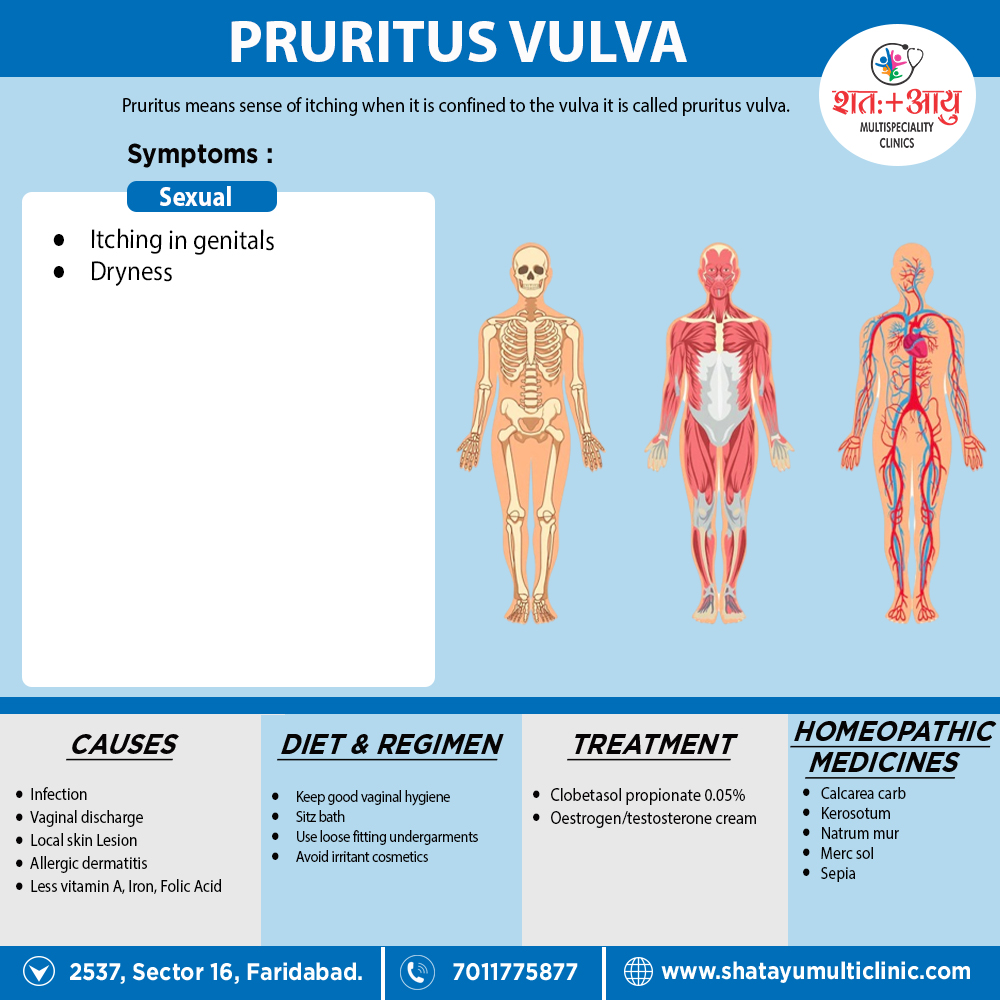Overview of Pruritus Vulva
About 10 percent of patients attending the gynecologic clinic complain of vulval itching.

Pruritus means sense of itching, when it is confined to the vulva, it is called pruritus vulvae. It should not be confused with pain.[3]
About 10 percent of patients attending the gynecologic clinic complain of vulval itching.
Use of nylon undergarments or washing those with certain soaps or detergents, idiosyncrasy to chemical contraceptives or condom is often related.[3]
The possible mechanisms of the repetitive ‘itch-scratch’ cycle mediate through the following: Special sensory innervation of the area.[3]
It should be borne in mind that pruritus vulvae are a manifestation of some underlying pathology either located at the site or elsewhere in the body.
The investigations should include i.e.:
Detailed history regarding — age of onset, intensity of itching, duration, associated vaginal discharge, contraceptive practice, relation with psychologic upset or neurosis, allergy to nylon, either soap or particular detergents.
General examination—Thorough systemic examination need.
Examination for diabetes mellitus, liver also thyroid disorders, hematological diseases to made
Local examination—The extent of the lesion is to note.[3]
Special investigations
Surgery: Surgery may be needed when biopsy is confirms features of neoplasia (VIN or invasion).[3]
Homeopathy treats the person as a whole. It means that homeopathic treatment focuses on the patient as a person, as well as his pathological condition. The homeopathic medicines selected after a full individualizing examination and case-analysis.
which includes
A miasmatic tendency (predisposition/susceptibility) also often taken into account for the treatment of chronic conditions.
A homeopathy doctor tries to treat more than just the presenting symptoms. The focus is usually on what caused the disease condition? Why ‘this patient’ is sick ‘this way’?.
The disease diagnosis is important but in homeopathy, the cause of disease not just probed to the level of bacteria and viruses. Other factors like mental, emotional and physical stress that could predispose a person to illness also looked for. No a days, even modern medicine also considers a large number of diseases as psychosomatic. The correct homeopathy remedy tries to correct this disease predisposition.
The focus is not on curing the disease but to cure the person who is sick, to restore the health. If a disease pathology not very advanced, homeopathy remedies do give a hope for cure but even in incurable cases, the quality of life can greatly improved with homeopathic medicines.
The homeopathic remedies (medicines) given below indicate the therapeutic affinity but this is not a complete and definite guide to the homeopathy treatment of this condition. The symptoms listed against each homeopathic remedy may not be directly related to this disease because in homeopathy general symptoms and constitutional indications also taken into account for selecting a remedy.
Pruritus means sense of itching, when it is confined to the vulva, it is called pruritus vulvae. It should not be confused with pain.
Reference: homoeopathic.in